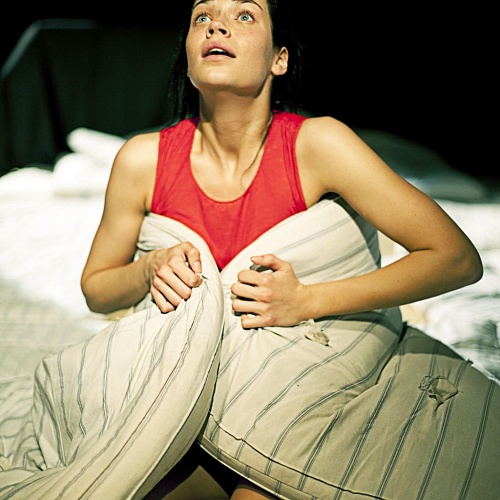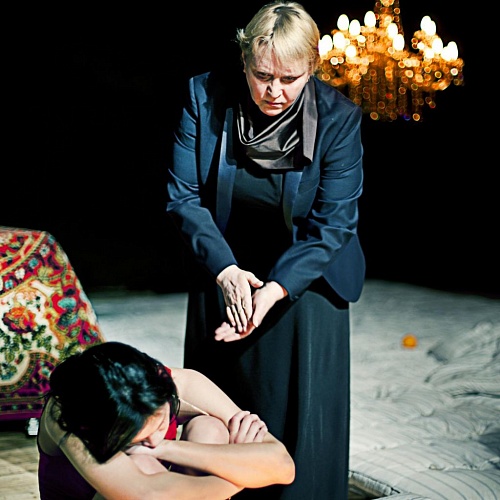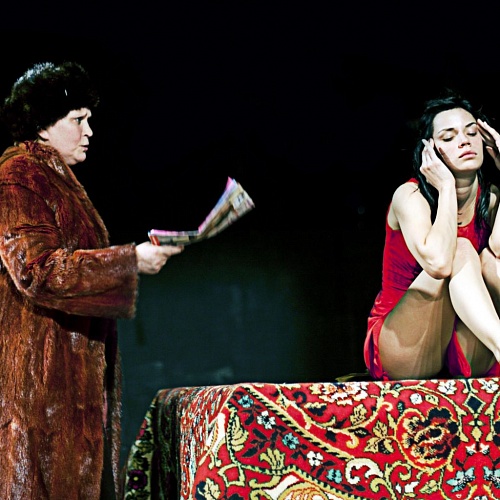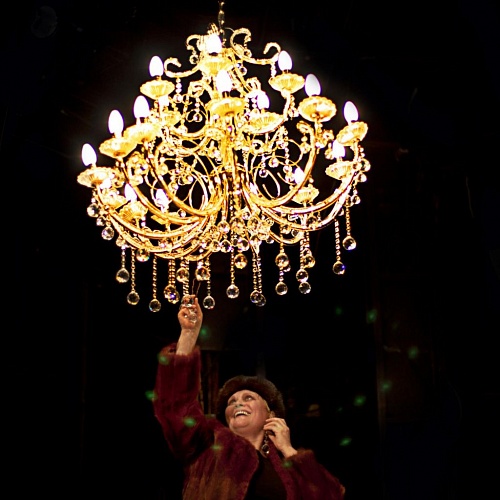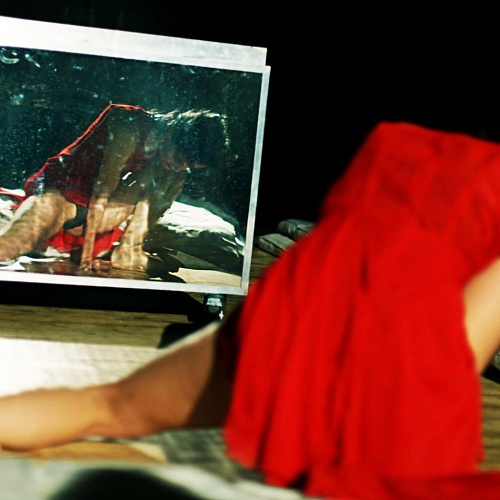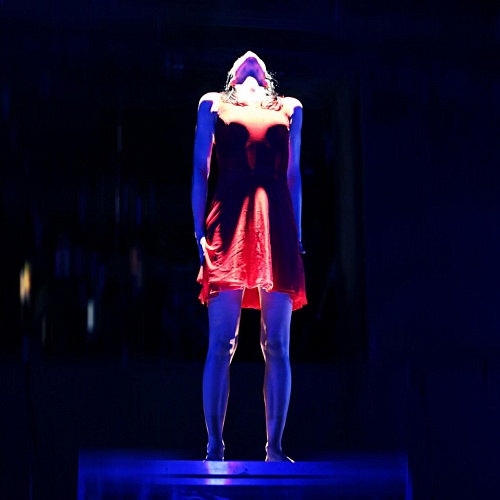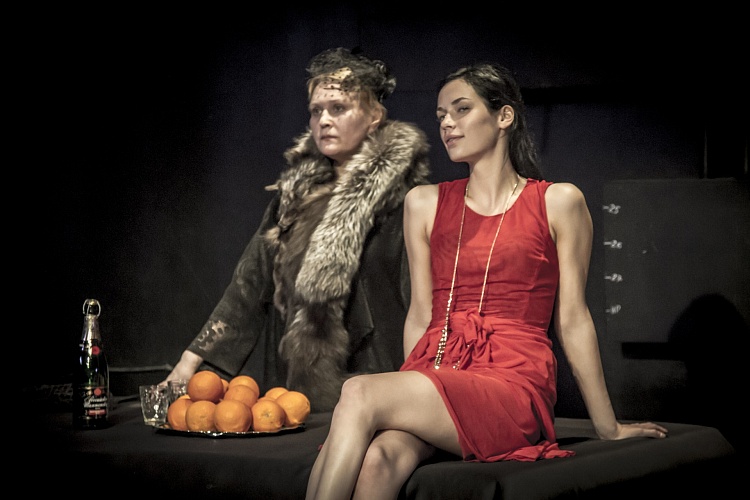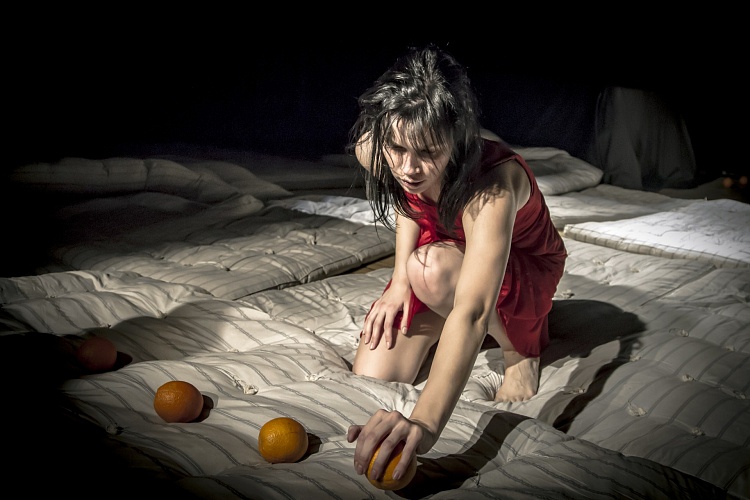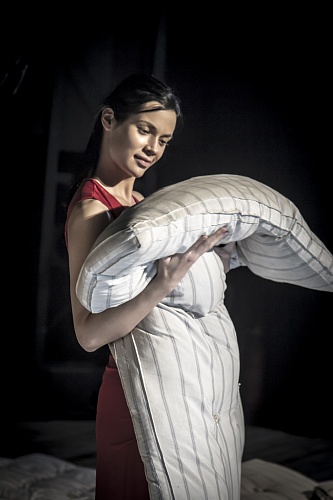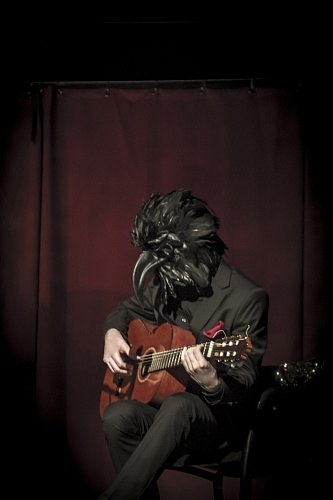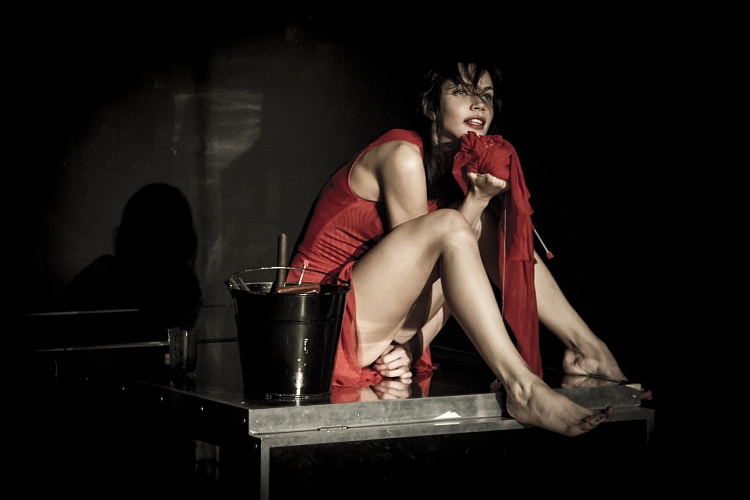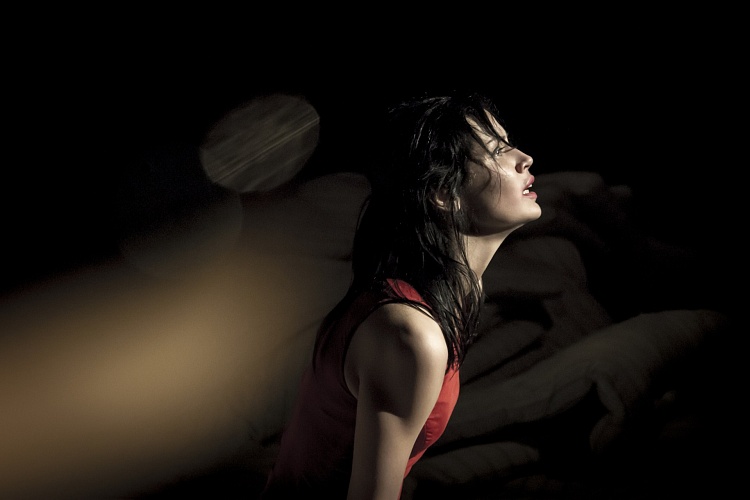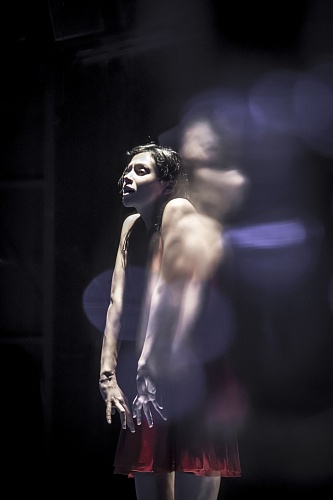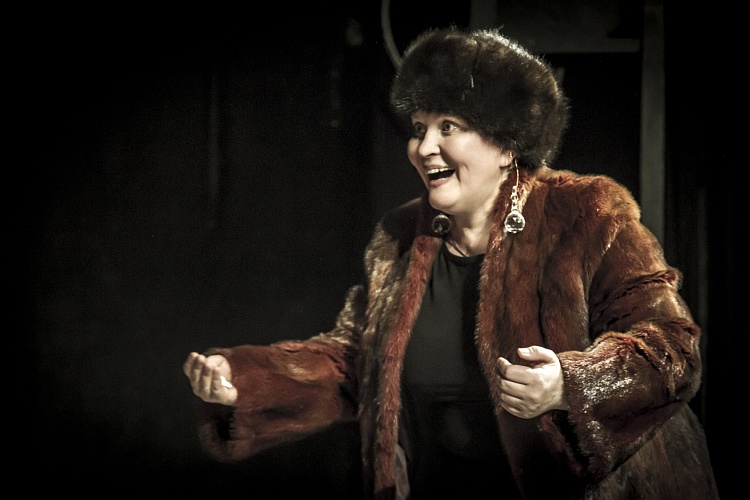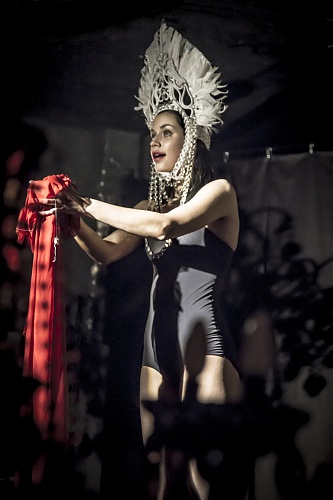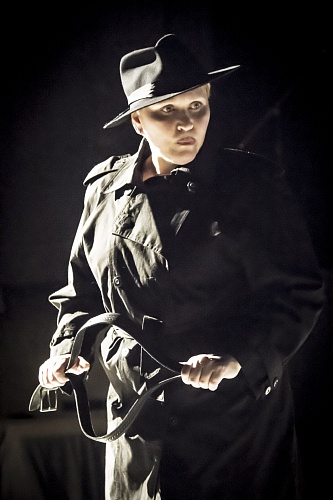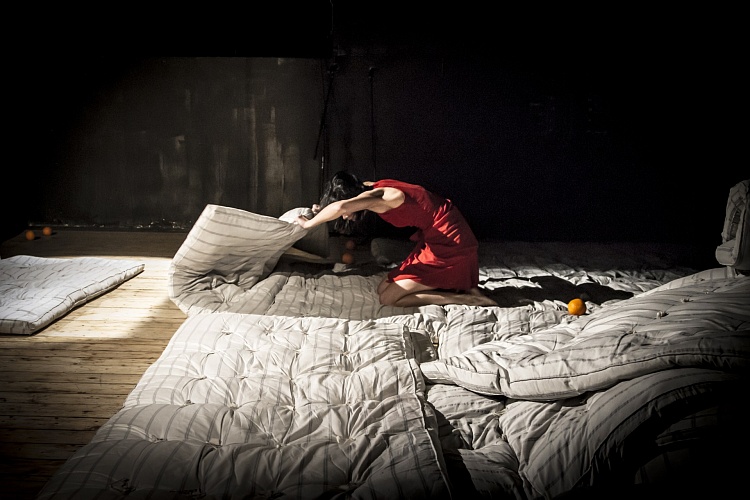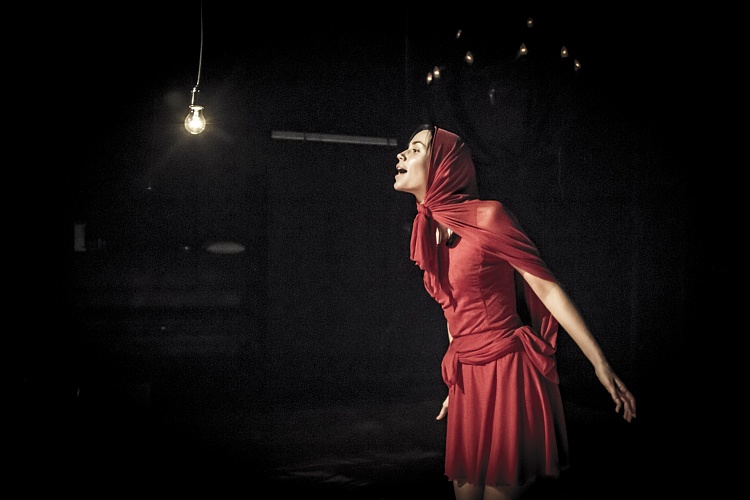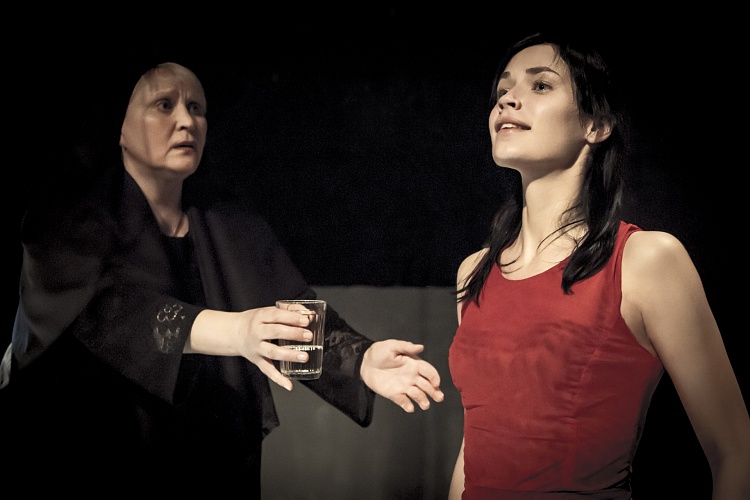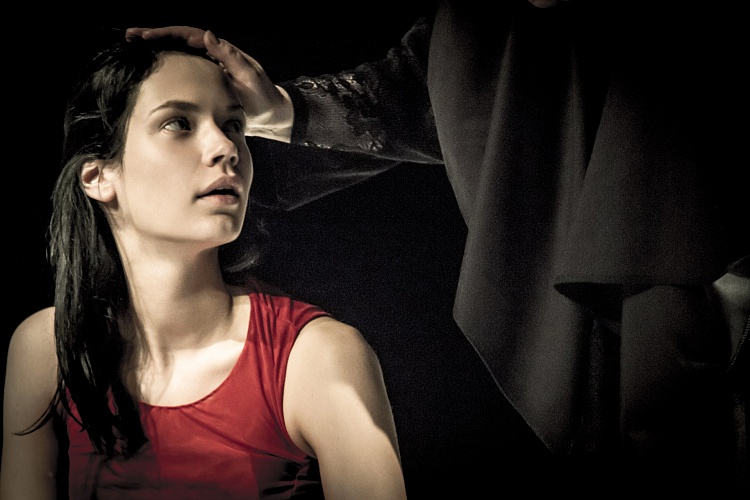Russian Beauty
The novel “Russian Beauty” was written by Victor Erofeev in the
early 80s and was only published 10 years later; it turned out to
be too radical for Russian society. Irina Tarakanova, performed
by Ekaterina Steblina from the “Studio Seven“, wears a scarlet
dress, sings in Portuguese with the accompaniment of a mysterious
Carlos (who represents a crow behind the window or, maybe, just a
handsome diplomat), and speaks to God through electric light
bulbs.
Based on the novel by Victor Erofeev "Me, undersigned, Irina Vladimirovna Tarakanova, alias Joan of Arc, The Maid of Orléans alias, partly Mary of Egypt, Russian, pregnant, non-party, deeply sympathetic, divorced, the first husband – I do not remember, the second one – a footballer, princess, patriote, involuntarily dependent, residing in the Union of Soviet Socialist Republics since my birth, having been returned to my place of origin in Moscow in 23 years; Andrianopolskaya street 3, building 2, apartment 16, declare my will to marry my adored fiancé Leonardo da Vinci, having been an Italian artist, nowadays an anonymous and restless body. The marriage will take place in my apartment at the idicated time. Signature: (Irina Tarakanova)" Victor Erofeev, "Russian Beauty" The novel Russian Beauty was written by Victor Erofeev in the early 80s and was only published 10 years later; it turned out to be too radical for Russian society. Even after the collapse of the USSR the book provoked strong indignation. Describing the story of Irina Tarakanova, who comes to conquer Moscow from a little provincial town and quickly plunges into violent and ruthless sexual life, Erofeev does not hesitate to call things by their name. The frankness with which he hurls the stream of female consciousness at his readers could only shock inhabitants of the USSR – a country “with no sex”. Later the book was translated into dozens of languages and recognized throughout the world. Spectators as well as the novel readers are plunged into the heroine’s inner world and watch the whole story through her eyes. Irina Tarakanova, performed by Ekaterina Steblina from Studio Seven, wears a scarlet dress, sings in Portuguese with the accompaniment of a mysterious Carlos (who is represented by a crow behind the window or, maybe, just a handsome diplomat), and speaks to God through electric light bulbs. She delivers passionate monologues and dances to Latin-American rhythms, dreaming of becoming a new Joan of Arc. In Berkovich’s show the whole stage is covered with the striped mattresses which either turn into phone booths, car seats or tombstones. It is an absurd world where delirium cannot be separated from reality; sex is a substitute for love and the only way to overcome insanity is death. Except for Tarakanova, there are only two actors on the stage: Anna Gulyarenko and Vyacheslav Gilinov who perform all the other roles, ranging from garish Mordovian Polina Nikanorovna to General Vlasov’s corpse. The play is nevertheless dominated by the Russian Beauty, torn to pieces by her dreams of a luxurious life, by her desire for love and her striving for Russia’s salvation. This is a story of beauty that once again tries to save the world but does not succeed.
Gallery
Authors:
Author:
Director:
Music, musical direction:
Songs translation:
Rinat Valiullin
Choreographer:
Alexander Lyubashin
Set design:
Ulya Khashem
Costumes:
Kirill Mintsev
Lighting designer:
Stage manager:
Angelina Gavrelyuk
Executive producer:
Actors:
Irina Vladimirovna Tarakanova:
She:
Anna Gilyarenko
Carlos:
Media about the event

